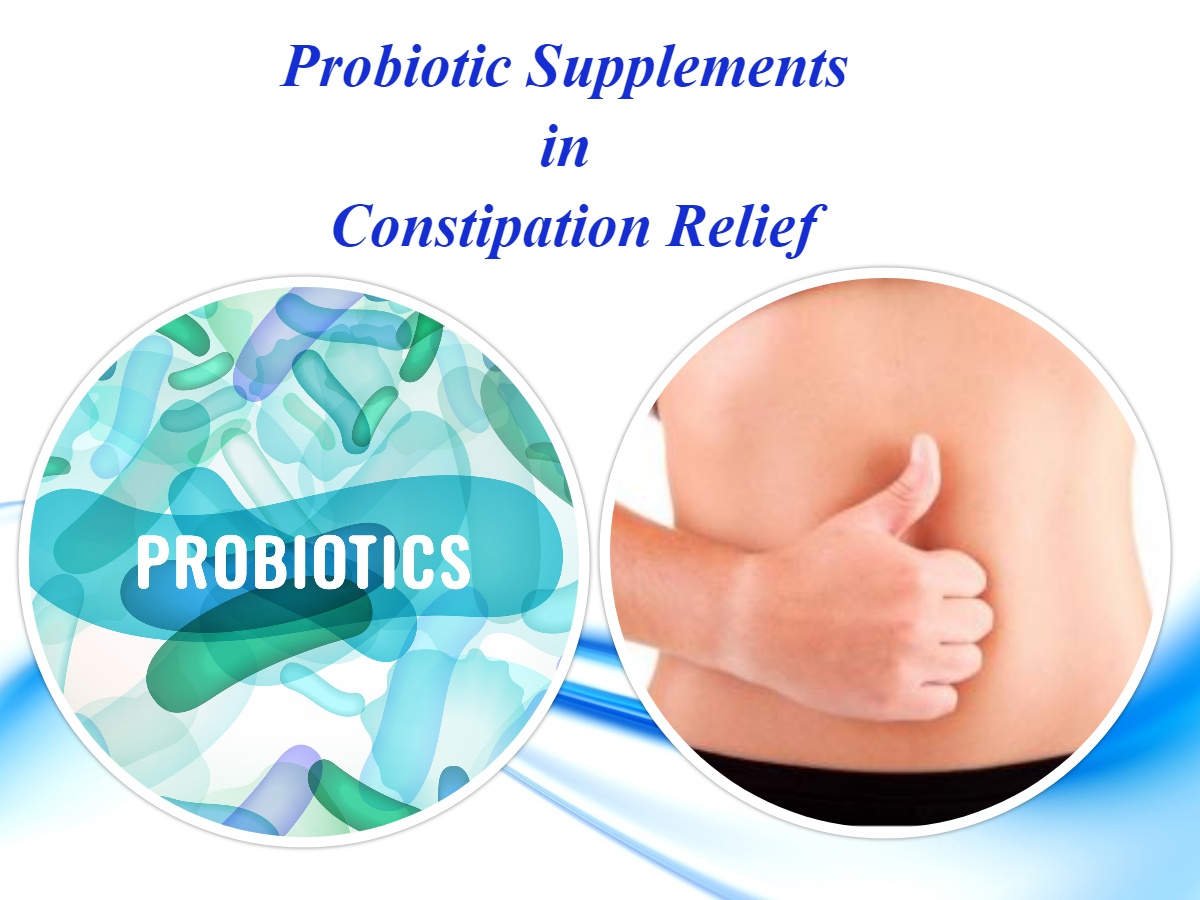Unlock relief from constipation with the benevolent bacteria of probiotics. Discover how probiotics’ effect on constipation can ease discomfort and promote digestive wellness.
Table of Contents
Introduction
The human gut is a complex ecosystem, home to billions of bacteria that play a critical role in our overall health. Among these, probiotics, often referred to as the ‘good’ or ‘beneficial’ bacteria, have gained significant attention for their health benefits, particularly in gut health management. This article dives into the world of probiotics and their positive impact on one of the most common digestive issues: constipation.
The Science Behind Probiotics
Understanding Probiotics
To understand the science behind probiotics, it’s essential to grasp the concept of the human microbiome—the vast ecosystem of microorganisms, including bacteria, fungi, viruses, and yeasts, that inhabit our bodies, especially the gut. These microorganisms are not mere passengers; they play critical roles in digesting food, synthesizing essential nutrients, protecting against pathogens, and modulating the immune system. Probiotics are a selected subset of these microorganisms that have been identified for their specific health benefits.
How Probiotics Work
Probiotics exert their benefits through several mechanisms, some of which are well understood, while others are the focus of ongoing research:
- Balancing the Gut Microbiota: The primary action of probiotics is to restore and maintain a healthy balance of the gut microbiota. By competing with harmful bacteria for nutrition and attachment sites on the intestinal wall, probiotics can inhibit the growth of harmful pathogens and reduce infections.
- Strengthening the Gut Barrier: Probiotics enhance the integrity of the intestinal barrier, preventing harmful substances and bacteria from leaking into the bloodstream and triggering inflammation or immune responses.
- Modulating the Immune System: Probiotics interact with the host’s immune system, enhancing its ability to fend off pathogens. This includes stimulating the production of antibodies and modulating the activity of various immune cells.
- Producing Beneficial Substances: Some probiotics can produce substances that have direct health benefits, such as short-chain fatty acids (SCFAs), which serve as energy sources for gut cells and help regulate metabolism and inflammation.
Evidence and Research
The effectiveness of probiotics is strain-specific, with different strains offering various health benefits. Research has shown promising results in several areas:
- Digestive Health: Probiotics are best known for their role in improving gut health. They can help manage irritable bowel syndrome (IBS), inflammatory bowel disease (IBD), and antibiotic-associated diarrhea by restoring the balance of the gut microbiota.
- Immune Function: Regular consumption of probiotics can enhance the body’s immune response, potentially reducing the incidence of respiratory infections and allergies.
- Mental Health: Emerging research suggests a connection between gut health and mental health, termed the “gut-brain axis.” Certain probiotics may help improve symptoms of depression, anxiety, and stress by influencing neurotransmitter activity and reducing inflammation.
- Metabolic Conditions: Some probiotics may influence weight management and reduce the risk of diabetes by affecting appetite regulation, fat storage, and insulin sensitivity.
Choosing the Right Probiotics
Not all probiotics are created equal, and their efficacy can vary widely depending on the strain, dosage, and individual’s health condition. It’s crucial to choose probiotic supplements based on scientific evidence supporting their use for specific health outcomes. Additionally, incorporating naturally fermented foods into the diet, such as yogurt, kefir, sauerkraut, and kimchi, can provide a diverse array of beneficial microorganisms.
Probiotics and Gut Health
The Role of the Gut Microbiome
The gut microbiome consists of trillions of microorganisms, including bacteria, viruses, fungi, and other microscopic living things. These microorganisms are essential for many bodily functions, including digestion, nutrient absorption, and the immune system. An imbalance in this gut microbiome, often referred to as dysbiosis, can lead to numerous health issues, including digestive disorders, immune system dysfunctions, and even mental health conditions.
How Probiotics Support Gut Health
Probiotics support gut health in several key ways:
- Restoring Balance: Probiotics can help restore the balance of the gut microbiome by increasing the population of beneficial bacteria and decreasing the presence of harmful bacteria. This balance is crucial for digestive health and can help prevent or treat conditions like irritable bowel syndrome (IBS), inflammatory bowel disease (IBD), and antibiotic-associated diarrhea.
- Enhancing Barrier Function: The gut barrier is the first line of defense against harmful substances entering the bloodstream from the gut. Probiotics strengthen this barrier by promoting the production of mucus, which acts as a protective layer, and by enhancing the integrity of the gut lining, preventing leaky gut syndrome.
- Immune System Modulation: Probiotics play a significant role in educating and regulating the immune system. They help train the immune system to distinguish between harmful invaders and harmless substances, reducing the risk of allergies and autoimmune diseases. Additionally, they can modulate immune responses, reducing inflammation in the gut and throughout the body.
- Producing Beneficial Substances: Probiotics can produce short-chain fatty acids (SCFAs) like acetate, propionate, and butyrate, which serve as energy sources for gut cells, help regulate blood sugar levels, and support the immune system. They also produce vitamins and enzymes that aid in digestion and nutrient absorption.
The Benefits of Probiotics for Digestive Health
Incorporating probiotics into one’s diet, whether through fermented foods or supplements, has been linked to numerous digestive health benefits. These include improved digestion, increased regularity, reduced symptoms of constipation and diarrhea, and alleviation of bloating and gas. Probiotics are also associated with a decreased risk of certain infections, such as Clostridioides difficile infection, which is often related to antibiotic use.

The Role of Probiotics in Managing Constipation
Understanding Constipation
Constipation is more than a mere inconvenience; it can significantly affect a person’s quality of life. The condition is often characterized by less than three bowel movements per week, hard and dry stools, straining during bowel movements, and a sensation of incomplete evacuation. Chronic constipation can lead to complications such as hemorrhoids, anal fissures, and fecal impaction.
Mechanisms of Action
Probiotics improve bowel function through several mechanisms, which contribute to their effectiveness in managing constipation:
- Restoring Microbial Balance: Probiotics can help balance the gut microbiota, which plays a crucial role in digestive processes. An imbalance in this microbiome can lead to slowed gastrointestinal transit, but introducing beneficial bacteria can restore harmony and improve bowel regularity.
- Enhancing Gut Motility: Some probiotic strains can influence gut motility, the movements of the digestive system that enable the passage of food and waste. By improving gut motility, probiotics can help increase the frequency of bowel movements in individuals with constipation.
- Production of Metabolic Products: Probiotics can produce short-chain fatty acids (SCFAs) through the fermentation of dietary fibers. SCFAs can stimulate the muscles in the gut, improving peristalsis (the wave-like muscle contractions that move food along the digestive tract) and facilitating easier stool passage.
- Improving Intestinal Environment: Probiotics can modulate the pH level in the gut, creating a more favorable environment for bowel movements. This can include making the gut slightly more acidic, which can help speed up transit time and improve stool consistency.
Clinical Evidence
Research supports the use of probiotics in managing constipation. Several studies have shown that specific probiotic strains, such as Bifidobacterium lactis, Lactobacillus reuteri, and Lactobacillus casei Shirota, can significantly increase stool frequency and improve stool consistency in adults and children with constipation. Furthermore, probiotics have been associated with a reduction in abdominal pain and bloating, common symptoms that accompany constipation.
Selecting the Right Probiotics
Not all probiotics are equally effective for managing constipation. It’s essential to choose strains that have been scientifically proven to offer benefits for digestive health and specifically for constipation. Products should ideally specify the strains they contain and their CFU (colony-forming units) count, which indicates the amount of live bacteria in each dose.
Mechanisms of Action
1. Alteration of Gut Microbiota Composition
Probiotics can modify the composition of the gut microbiota, increasing the abundance of beneficial bacteria while decreasing the presence of harmful bacteria. This rebalancing is crucial because an imbalance in the gut microbiota (dysbiosis) has been associated with various gastrointestinal issues, including constipation. By promoting a healthier microbial balance, probiotics can improve gut function and regularity.
2. Enhancement of Intestinal Motility
One of the key factors contributing to constipation is reduced gut motility, which is the ability of the gastrointestinal tract to move contents along. Certain probiotic strains have been shown to stimulate gut motility by interacting with the intestinal mucosa and enhancing muscular contractions. This results in more regular bowel movements and a reduction in the symptoms of constipation.
3. Production of Short-Chain Fatty Acids (SCFAs)
Probiotics can ferment dietary fibers, resulting in the production of SCFAs, such as acetate, propionate, and butyrate. These SCFAs serve multiple roles, including nourishing colonocytes (the cells lining the colon), lowering the pH of the colon (which can help to increase stool movement), and stimulating peristalsis, the wave-like muscle contractions that move food through the digestive tract. Through these actions, SCFAs help to soften stools and promote more regular bowel movements.
4. Improvement of the Intestinal Barrier Function
Probiotics contribute to the integrity of the gut barrier, which is essential for preventing inflammation and maintaining overall gut health. A strong intestinal barrier also prevents the translocation of harmful bacteria and substances that could disrupt bowel movements and lead to constipation. By enhancing the production of tight junction proteins, probiotics strengthen the gut barrier, supporting efficient nutrient absorption and regular bowel function.
5. Modulation of the Immune System
The gut microbiota and the immune system are closely linked, with an imbalance in the former often leading to an overactive or misdirected immune response that can affect gut motility. Probiotics help modulate the immune system, reducing unnecessary inflammation in the gut that might contribute to constipation. This immunomodulatory effect can help create a more conducive environment for regular bowel movements.
6. Production of Bioactive Compounds
Some probiotics can produce bioactive molecules that directly or indirectly influence gut motility and function. These compounds can stimulate the release of digestive enzymes and hormones that regulate bowel movements, further aiding in the relief of constipation.
Choosing the Right Probiotics
1. Identify the Probiotic Strains
Not all probiotics are the same; different strains offer different health benefits. For constipation, specific strains have been studied and shown to be effective, including:
- Lactobacillus species such as L. reuteri, L. rhamnosus, and L. plantarum
- Bifidobacterium species such as B. lactis, B. longum, and B. bifidum
Research suggests that these strains can improve bowel frequency, stool consistency, and overall gut transit time.
2. Look for Clinical Evidence
Choose probiotic products that have clinical evidence supporting their efficacy, especially for gastrointestinal health and constipation relief. Many probiotics on the market claim various health benefits, but not all have substantial scientific backing. Reading scientific reviews and clinical trial results can provide insights into which probiotic strains and products have proven effects.
3. Consider the CFU Count
The potency of a probiotic supplement is often measured in colony-forming units (CFUs), which indicate the number of viable bacteria per dose. While higher CFU counts may seem better, the optimal count depends on the specific probiotic strains and the health outcome desired. For constipation relief, products typically range from 1 billion to 10 billion CFUs per dose. However, efficacy is more strain-dependent than simply the quantity of bacteria.
4. Check for Viability
For probiotics to be effective, they must be alive when consumed and able to survive the journey through the acidic environment of the stomach to reach the intestines. Look for products that guarantee viability through the end of shelf life, not just at the time of manufacture. Some formulations are designed to protect the probiotics through encapsulation or other technologies to ensure they reach the gut where they can exert their beneficial effects.
5. Product Quality and Brand Reputation
Opt for probiotics from reputable manufacturers that adhere to high-quality production standards. Look for products that have been third-party tested for purity and potency. Certifications from independent organizations can also indicate a product’s quality and safety.
6. Formulation and Delivery Method
Probiotics come in various forms, including capsules, tablets, powders, and fermented foods. Consider which form is most convenient and palatable for you. Some people may prefer dietary sources of probiotics, such as yogurt, kefir, sauerkraut, or other fermented foods, while others might find supplements more convenient.
7. Consult Healthcare Providers
Before adding probiotics to your regimen, especially for specific health concerns like constipation, it’s wise to consult with a healthcare provider. They can offer personalized advice based on your health history and current medications.
Types of Probiotics
1. Lactobacillus
This is perhaps the most well-known genus of probiotics, commonly found in yogurt and other fermented foods. Lactobacillus strains are known for their ability to produce lactic acid, which helps inhibit harmful bacteria in the gut. They can be beneficial for treating and preventing diarrhea, reducing the symptoms of irritable bowel syndrome (IBS), and aiding in the digestion of lactose. Specific strains like Lactobacillus rhamnosus GG and Lactobacillus reuteri have been extensively studied for their health benefits.
2. Bifidobacterium
Bifidobacterium is another key genus of bacteria that is often included in probiotic supplements. These bacteria reside in the intestines and are important for processing dietary fiber, preventing the growth of harmful bacteria, and producing essential vitamins. Bifidobacterium may help ease symptoms of IBS, improve symptoms of certain intestinal infections, and support overall digestive health. Bifidobacterium lactis, Bifidobacterium longum, and Bifidobacterium bifidum are among the common strains used in supplements.
3. Saccharomyces boulardii
Though not a bacterium but a yeast, Saccharomyces boulardii is considered a probiotic because of its health-promoting properties. It’s unique in that it’s a transient probiotic, meaning it passes through the digestive system rather than colonizing it. S. boulardii has been shown to be effective in preventing and treating diarrhea associated with antibiotics, traveling, and certain infections. It may also have beneficial effects on the immune system.
4. Streptococcus thermophilus
This type of probiotic is often used in the production of yogurt and cheese. It’s known for its ability to produce large quantities of lactic acid, which can help break down lactose, making dairy products more digestible for those with lactose intolerance. Streptococcus thermophilus also has potential benefits for skin health and may help prevent and treat diarrhea.
5. Enterococcus faecium
Enterococcus faecium is a probiotic that contributes to gut health by inhibiting the growth of harmful bacteria, enhancing the barrier function of the intestinal lining, and stimulating the immune response. However, it’s important to note that not all strains of Enterococcus are beneficial and some can be pathogenic, so it’s crucial to choose products that contain strains proven to be safe and effective.
What to Look For
1. Identified Strains
Look for products that clearly list the specific strains of probiotics they contain, not just the species. Different strains of the same species can have different effects on health. Products that specify their strains are often backed by more research and transparency.
2. CFU Count
CFU stands for colony-forming units, which indicate the number of viable bacteria or yeast cells in a probiotic. A higher CFU count doesn’t always mean a better product, but it should have an adequate count to ensure enough survive the journey through the digestive tract. Look for products with a CFU count guaranteed at the time of expiration, not just at the time of manufacture.
3. Clinical Studies
Opt for probiotic products that have been subjected to clinical studies and have proven benefits for the condition you’re interested in treating or preventing. Research-backed products are more likely to provide the health benefits they claim.
4. Storage Requirements
Some probiotics need to be refrigerated to maintain their potency, while others are shelf-stable. Make sure you can meet the storage requirements of the probiotic you choose to ensure its effectiveness over time.
5. Expiration Date
Check the expiration date to ensure the probiotics are still viable. A product past its expiration date may not contain the live cultures promised on the label.
6. Purity and Quality
Choose products from reputable brands that adhere to good manufacturing practices (GMPs). Look for third-party certifications or seals that indicate the product has been tested for purity, potency, and quality, such as those from NSF International, USP (United States Pharmacopeia), or ConsumerLab.
7. Allergen Information
If you have food allergies or sensitivities, check the label for potential allergens. Some probiotics may contain dairy, soy, or other allergens as part of their formulation or due to the manufacturing process.
8. Prebiotics
Some probiotics come with prebiotics, which are non-digestible fibers that feed the beneficial bacteria in the gut. This combination can sometimes enhance the effectiveness of the probiotic. Look for products that contain prebiotics if you’re interested in this synergistic effect.
9. Formulation and Delivery System
The formulation and delivery system of the probiotic can affect its ability to survive the acidic environment of the stomach and reach the intestines. Some products are designed with protective coatings or are formulated as slow-release capsules to enhance survival rates.
Natural Sources of Probiotics
1. Yogurt
Yogurt is one of the most well-known probiotic foods, made by fermenting milk with live bacteria cultures. It’s important to look for yogurts that contain “live” or “active” cultures to ensure probiotic benefits. Yogurt can contribute to digestive health, boost the immune system, and may even help with lactose intolerance.
2. Kefir
Kefir is a fermented milk drink similar to yogurt but with a thinner consistency. It’s made by adding kefir grains to milk, which are cultures of yeast and lactic acid bacteria. Kefir contains a wider variety of bacteria strains than yogurt, making it a potent source of probiotics.
3. Sauerkraut
Sauerkraut is fermented cabbage that’s rich in probiotics, fiber, and vitamins C and K. It’s made by mixing cabbage with salt and allowing it to ferment naturally. Ensure to choose unpasteurized sauerkraut since pasteurization kills the beneficial bacteria.
4. Kimchi
Kimchi is a spicy Korean side dish made from fermented vegetables, primarily cabbage, along with seasonings like chili pepper, garlic, ginger, and scallions. It’s a rich source of probiotics and vitamins A and B. Kimchi’s fermentation process promotes the growth of lactic acid bacteria that benefit digestive health.
5. Miso
Miso is a Japanese seasoning produced by fermenting soybeans with salt and koji (a type of fungus), and sometimes rice, barley, or other ingredients. Miso soup, a popular way to consume miso, can provide digestive benefits due to its probiotic content.
6. Tempeh
Tempeh is a fermented soybean product that’s a staple in Indonesian cuisine. It’s a good source of protein, fiber, and vitamins. The fermentation process not only produces probiotics but also reduces the phytic acid in soybeans, improving nutrient absorption.
7. Pickles
Fermented pickles (in brine, not vinegar) are a good source of probiotics. The cucumbers ferment in saltwater, creating lactic acid bacteria. Look for naturally fermented pickles in the refrigerated section to ensure probiotic benefits.
8. Traditional Buttermilk
Traditional buttermilk, often referred to as “cultured buttermilk,” is the liquid left behind after churning butter from cream. This version contains probiotics, unlike the more commonly found cultured buttermilk sold in stores, which may not have probiotic benefits.
9. Natto
Natto is another fermented soybean product similar to tempeh but with a sticky texture and a strong, distinct flavor. It’s a staple in Japanese cuisine and contains a powerful probiotic called Bacillus subtilis, known for its digestive health benefits.
Supplements vs. Natural Sources
Supplements:
1. Convenience: Probiotic supplements are convenient and easy to take, requiring no preparation or cooking. They come in various forms such as capsules, tablets, powders, and even chewable gummies, making them suitable for those with busy lifestyles.
2. Specific Strains: Probiotic supplements often contain specific strains of bacteria in standardized amounts, allowing for targeted support for particular health conditions. This can be advantageous if you’re looking for a specific strain or combination of strains for a particular health concern.
3. Higher Potency: Probiotic supplements typically contain higher concentrations of bacteria compared to natural sources, allowing for a higher intake of beneficial bacteria in each dose.
4. Shelf Stability: Many probiotic supplements are shelf-stable, meaning they don’t require refrigeration and have a longer shelf life compared to perishable natural sources.
5. Controlled Quality: Reputable probiotic supplement brands adhere to strict quality control standards, ensuring consistency, purity, and potency in each dose.
Natural Sources:
1. Whole Foods: Natural sources of probiotics, such as fermented foods, provide a broader spectrum of nutrients beyond just probiotics. They often contain vitamins, minerals, fiber, and other beneficial compounds that contribute to overall health.
2. Diversity of Bacteria: Fermented foods contain a variety of bacterial strains, which can help diversify the gut microbiome and promote overall gut health.
3. Dietary Diversity: Incorporating fermented foods into your diet encourages dietary diversity, which is associated with better overall health outcomes and a more robust gut microbiome.
4. Digestive Support: Fermented foods contain enzymes and organic acids that can aid in digestion and improve nutrient absorption, supporting overall digestive health.
5. Culinary Enjoyment: Natural sources of probiotics like yogurt, kefir, kimchi, and sauerkraut are flavorful additions to meals and snacks, adding variety and enjoyment to your diet.
Conclusion
Probiotics offer a natural and effective way to manage constipation, improving gut health and enhancing quality of life. By understanding how to choose and incorporate probiotics into your diet, you can harness the benefits of these benevolent bacteria for better digestive health.
FAQs
- Can probiotics cure constipation? While probiotics can significantly improve symptoms of constipation, they should be considered part of a comprehensive approach to digestive health, including diet and lifestyle changes.
- How long does it take for probiotics to work for constipation? The effects of probiotics can vary from person to person. Some may notice improvements within a few days, while others might take several weeks to observe noticeable changes.
- Are there any risks associated with taking probiotics? Probiotics are safe for most people, but those with compromised immune systems or severe illnesses should consult a healthcare provider before starting probiotic supplementation.
- Can children take probiotics for constipation? Yes, probiotics can be beneficial for children experiencing constipation. It’s important to choose products specifically designed for children and to consult with a pediatrician beforehand.
- Can I take probiotics every day? Yes, taking probiotics daily is generally considered safe and can be beneficial for maintaining gut health and preventing constipation.









